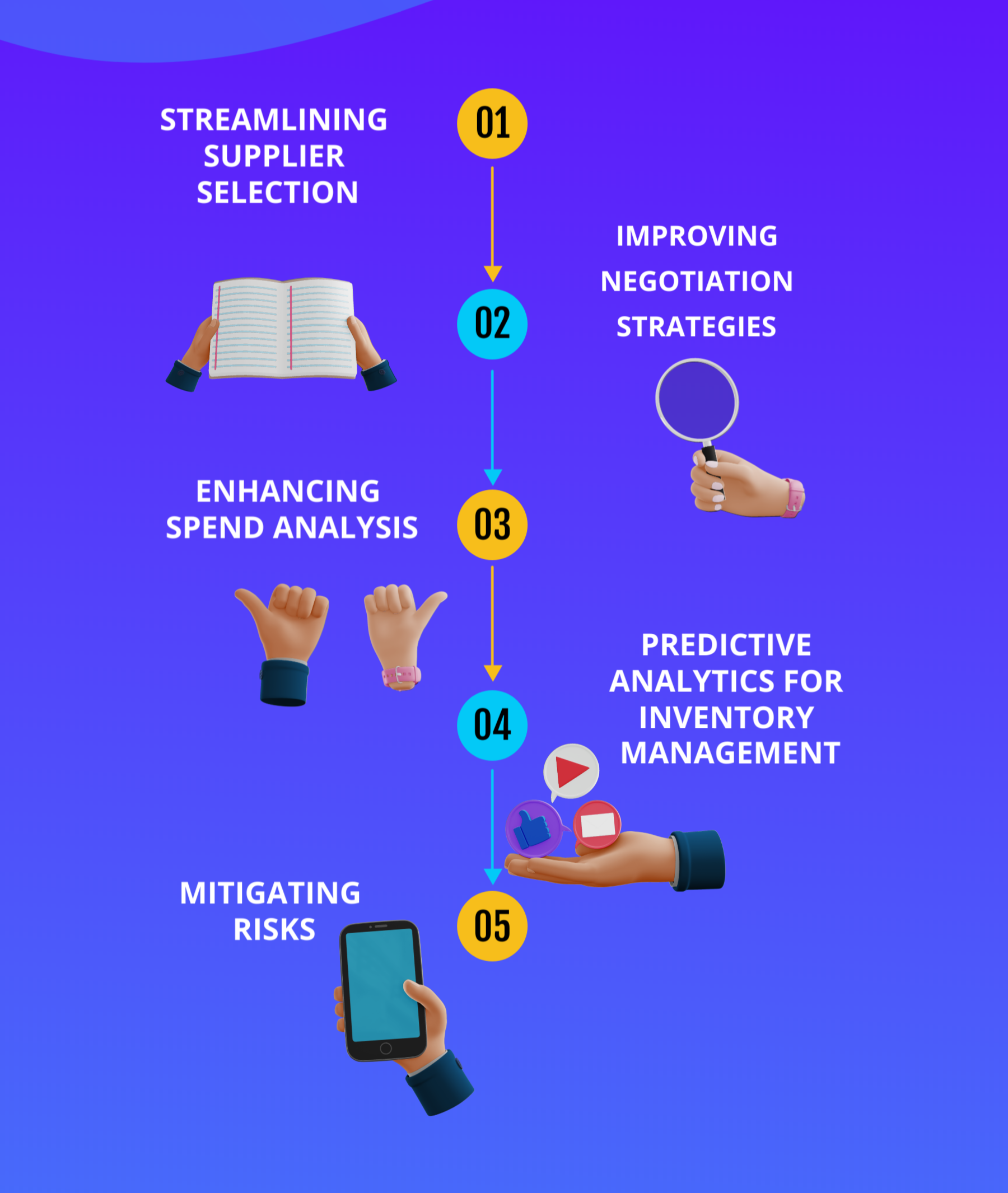How AI is Revolutionizing Procurement Decision-Making
The traditional procurement process involves a lot of manual work, making it time-consuming and prone to errors. This is where AI comes in, as it can automate many of these tasks and provide valuable insights to support decision-making. Let's take a look at some specific ways in which AI is revolutionizing procurement decision-making.
1. Streamlining Supplier Selection:
Choosing the right suppliers is crucial for any organization's success, but it can be a daunting task with a large number of potential suppliers and various factors to consider. AI can analyze historical data, market trends, and supplier performance to identify the best suppliers for a specific organization. This not only saves time but also ensures that suppliers are selected based on data-driven insights rather than subjective opinions.
2. Improving Negotiation Strategies:
Negotiating with suppliers is a key aspect of procurement, and AI can help in this process by analyzing data from past negotiations and identifying successful strategies. By taking into account factors such as market conditions, supplier performance, and pricing trends, AI can suggest the most effective negotiation tactics for a specific situation.
3. Enhancing Spend Analysis:
AI-powered spend analysis tools can analyze vast amounts of data to identify patterns and trends in spending behavior. This can help organizations identify areas where they can reduce costs, negotiate better pricing with suppliers, and make more informed decisions about their spending.
4. Predictive Analytics for Inventory Management:
Inventory management is another critical aspect of procurement, as it involves balancing stock levels to meet demand while minimizing excess inventory. AI can use predictive analytics to forecast demand and optimize inventory levels, reducing the risk of stock shortages or excess stock.
5. Mitigating Risks:
AI can also play a vital role in mitigating risks in procurement, particularly with supplier selection and contract management. By analyzing supplier data, market trends, and other relevant factors, AI can identify potential risks and provide recommendations for risk mitigation strategies.



